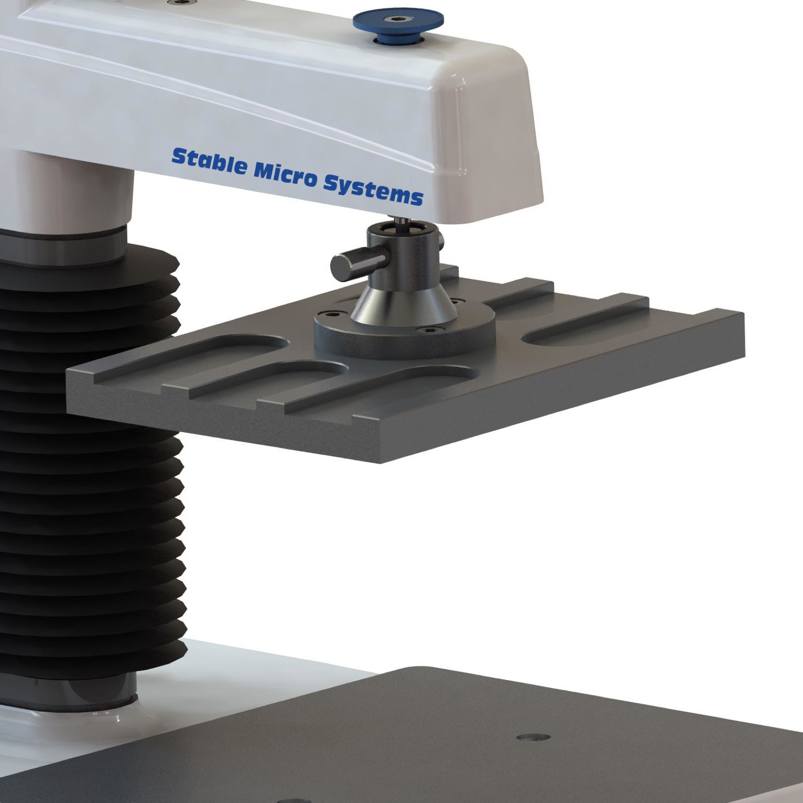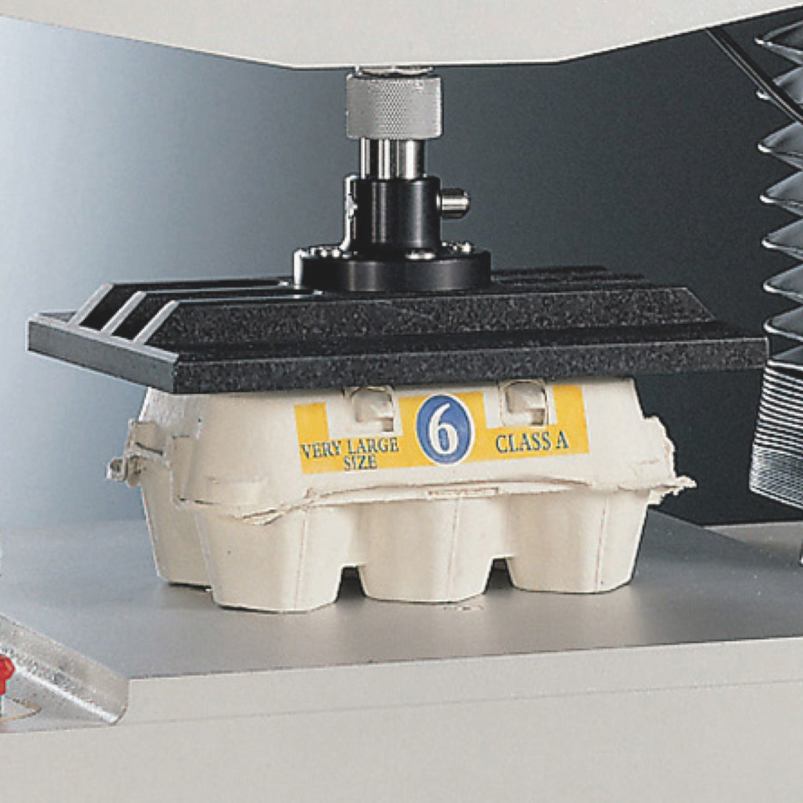Product overview
The measurement of packaging compression properties is important for various industries, particularly in packaging design, manufacturing, and quality control. Packaging compression properties refer to how packaging materials respond to external forces, such as pressure or weight. Measuring these properties provides critical insights into how packaging will perform during transportation, storage, and handling.
A suitable testing attachment is a single aluminium Rectangular Compression Platen for lightweight compression of products such as packaging/boxes. Platens can be manufactured to special order up to a width of 290mm.
This attachment is typically used in:
TAPPI T822 – Ring crush of paperboard (rigid support method)
ASTM D642:00 – Compression testing of shipping containers
ASTM D7030:04 – Short term creep performance of corrugated cardboard boxes
BS ISO 12048:1994 – Compression testing of complete, filled transport packages
TAPPI T809 – Flat crush of corrugating medium
Ideal sample form
Self-supporting samples.
Benefits and limitations
- Large samples can be contained under the attachment for compression testing.
- Dimensions: 200mm x 140mm.
- Maximum box height on a TA.XTplusC Texture Analyser: 235mm.
Technical information
Installation
Full installation instructions are provided within the Education Zone of the latest Exponent/Connect software version and on the technical information sheet accompanying this product.
Chemical compatibility
Stable Micro Systems probes and attachments are commonly made from four materials: anodised aluminium (AA6082 T6), stainless steel (316 T), Delrin (acetyl copolymer) and Perspex (polycarbonate).
In general use, probes and attachments made from these materials will be suitable for testing food products and inert non-food materials.
The four materials listed above are not universally resistant to all types of chemicals and as such the compatibility of the probe/attachment material with the product (to be tested) must be established to prevent damage to the probes and attachments. If the compatibility of the product with the probe is unknown to the customer then the chemical information about the product (Material Safety Data Sheet or Product Data Sheet) should be submitted to Stable Micro Systems. Stable Micro Systems will then assess the suitability of the probe/attachment material for use with the product and advise accordingly. If this advice is not sought then Stable Micro Systems will not accept liability for probes/attachments damaged by chemical attack from the product being tested.
Cleaning and maintenance
All probes and attachments may be cleaned in warm (or hand hot) water using a mild detergent. A soft brush may be used but abrasive cleaning aids should be avoided. Stable Micro Systems products should not be microwaved or cleaned in a dishwasher.
Screw threads should be lightly lubricated after drying using a light lubricant, e.g. petroleum jelly, mineral oil. This will aid the fitting and unscrewing of the item. Each component of a probe or attachment should be wrapped separately when stored, to avoid scratching or chipping. This will safeguard against any unnecessary damage to the accessory.



